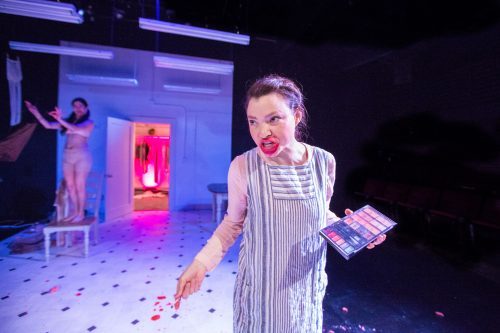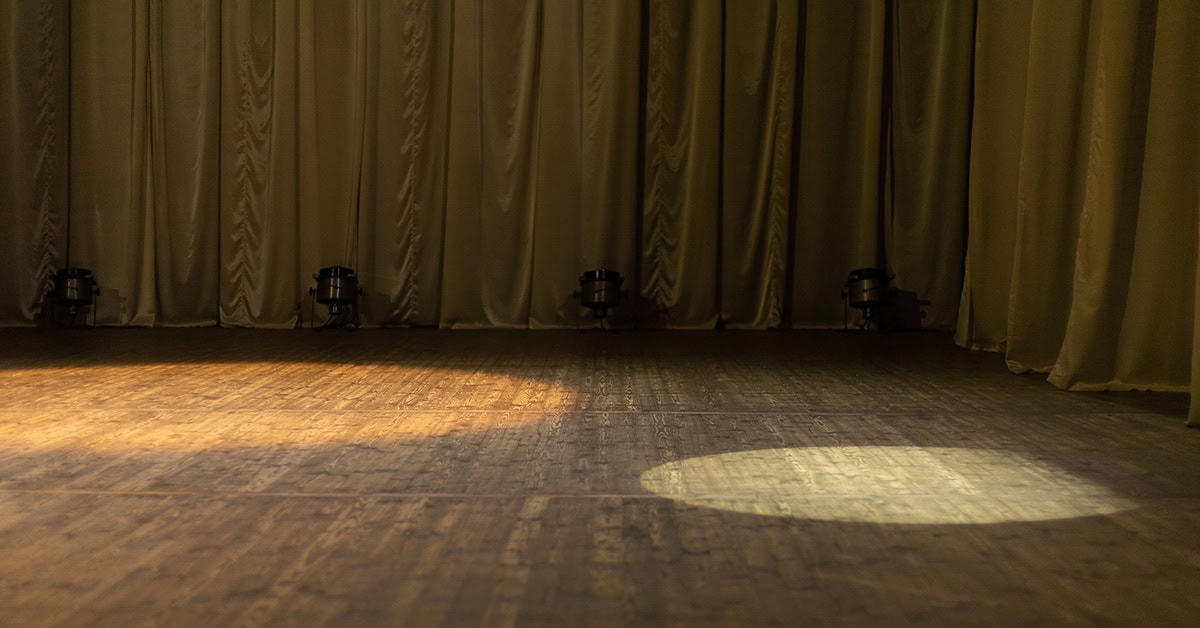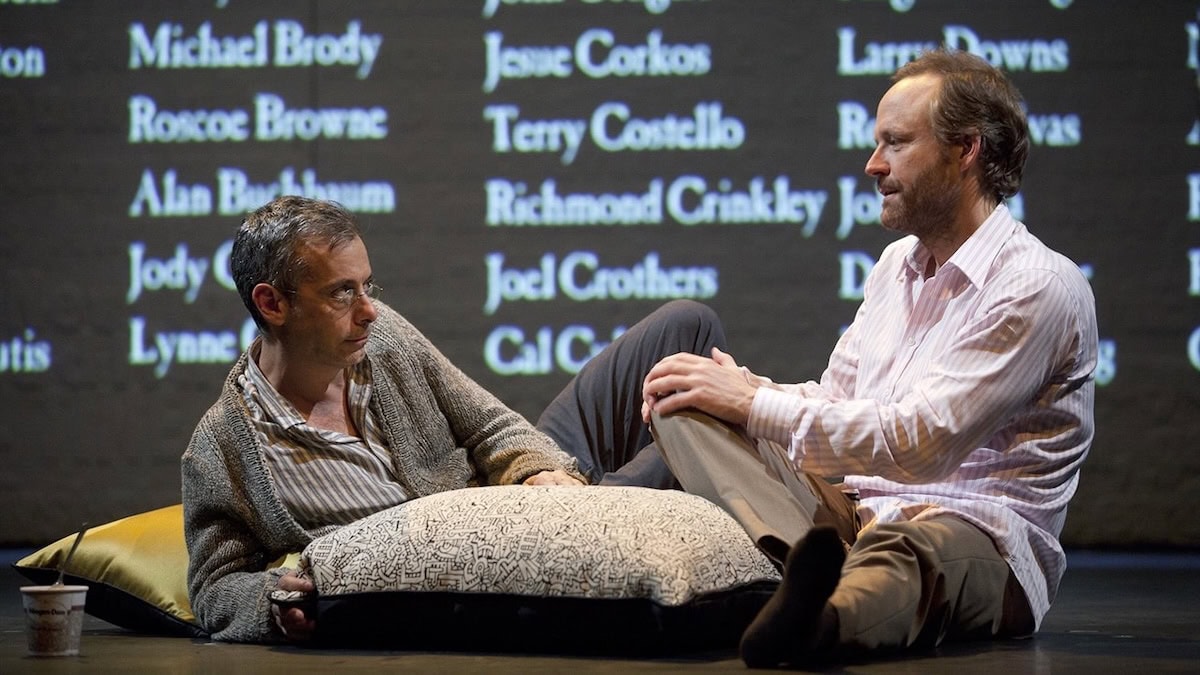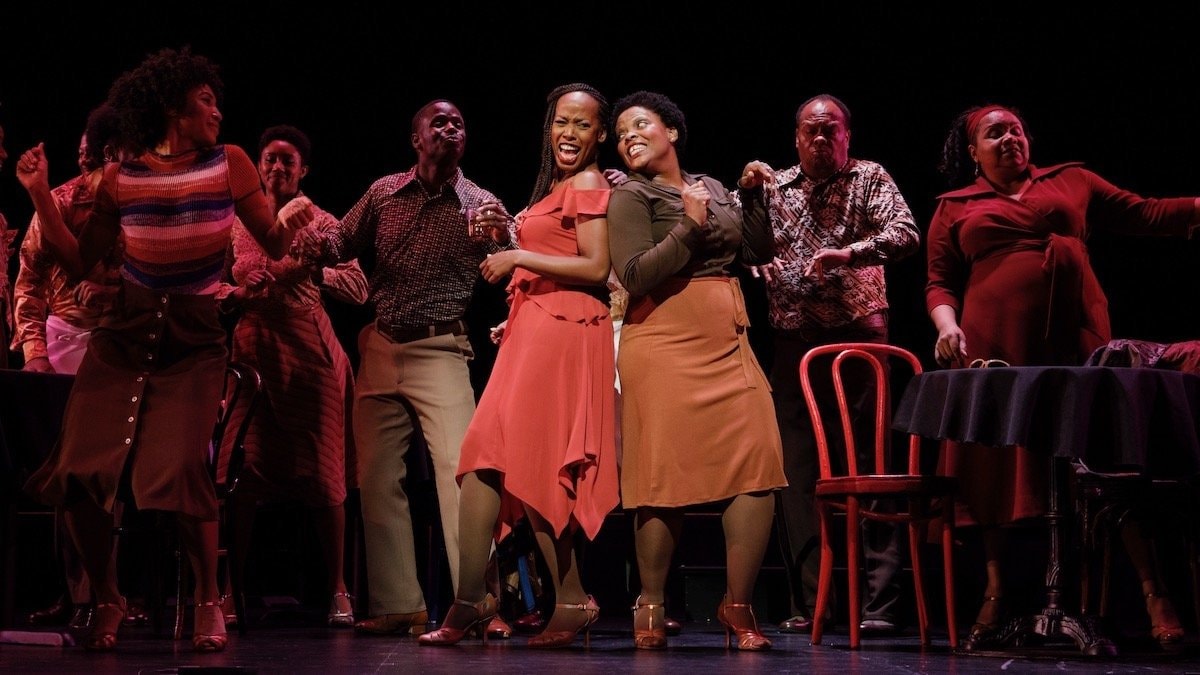
Above all, this play should not be well behaved.
Alice Birch ends her playwright’s note for Revolt. She said. Revolt again. with a call to action. The first time I read it, a little thrill went down my spine. It’s a statement full of delicious permission and unsettling challenge. What does it mean to misbehave in the theatre? Is it possible to craft an experience that is anarchic? How does one rehearse chaos? And how do we encourage our audience not only to ride along, but to get rowdy with us?
At Third Rail Repertory Theatre, we centered our production of Revolt. She said. Revolt again. around this idea of bad behavior. Director Rebecca Lingafelter envisioned an event in which actors and audience tested the boundaries of socially-sanctioned self-expression: “[Alice Birch] asks us to interrogate the ‘cop in our head’ that tells us when and where and how to express ourselves.”
This ‘cop in our head’ is a powerful voice, especially between the four walls of a theatre. In general, audiences know where they are supposed to be (in the lobby, in the house) and where they aren’t (onstage, backstage). They know when to be quiet and when to applaud. In the American theatre, audience members may even attempt to dampen their own emotional responses in order not to disturb their neighbors. As theatre-goers, we are familiar with the rules of the space and we generally follow them, expecting our peers to do the same.
But with Revolt., Lingafelter wanted to disrupt this sense of the theatre as an orderly and regulated environment. It began with restructuring the path to the house; audience members had to walk through the dressing room where the actors were preparing for the performance in order to take their seats. Right away, the discomfort was palpable. People turned back. They asked the ushers once, twice, three times if this was the right way to go. They kept their eyes down and hurried through, trying to take up as little space as possible. In order to get into Alice Birch’s play, we had to transgress a rule that seemed written in stone. Revolt.
There were also active opportunities to misbehave before and during the show. The lobby, the house and the stage were filled with switches that would control the lights, cause sirens to blare, or sometimes do nothing at all. Audience members could flip these switches at any time, creating a performance-derailing disruption that the actors had to address before moving on with the play. Revolt again.
As an audience member at the show, I saw little revolutions taking place all around me. An older couple flick the siren switch during pre-show, then giggle sheepishly as the actors emerge from the dressing room and glance around disapprovingly before shutting it off. A flying watermelon shatters against the stage, spraying sticky fruit chunks into the front row. Actors careen through the voms shouting over one-another in ecstatic, half-formed revelations. And during the talk back, women interrupt men to share how the play made them feel heard, how it reflected their hearts back to them, how it was not in the least exaggerated or over-the-top. Revolt. She said.
These kinds of revolutions are exactly the responses that Lingafelter sought to create: “We are working to break down those walls–the ones we impose on ourselves as much as the ones that are imposed on us” said Lingafelter in her director’s notes. “Stand up. Walk around. Talk back to the actors. Talk to your neighbor. Whoop. Holler. Cheer. Cry. Yell. Let’s do this together.”
As I left the theatre, I was struck by how much I needed to hear Birch’s words at this time in our world. Revolt gives us essential practice in skills we need to navigate an increasingly complex political landscape; we are called to sit forward, to question everything we think we know about language, and to stay present with each moment as it comes blasting toward us. We are called to misbehave, if we have to, to be heard.
I stepped out of the theatre into a warm summer evening, feeling more alert to my own power than I had in weeks, and suddenly aware of a lump in my throat.
It was my voice. Ready to be raised in revolt.
To purchase a copy of Revolt, click here, and to learn more about licensing a production, click here.

Recommended Shows for Drama Festivals

The Truth Behind… The Normal Heart

